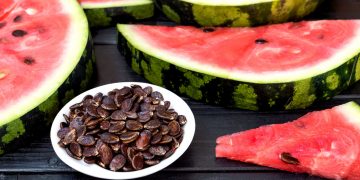https://worldspaper.com/ Food refers to any substance consumed to provide nutritional support for the body. It is essential for human survival and plays a crucial role in maintaining health and well-being. Food can be classified into different categories such as carbohydrates, proteins, fats, vitamins, and minerals. There are many different types of food, including fruits, vegetables, grains, meats, and dairy products. Food can be prepared and consumed in a variety of ways, from simple home-cooking to gourmet meals in restaurants. Food culture, customs, and traditions vary widely across different regions and cultures. With the advancing world, food industry has grown exponentially, with processed, frozen and packaged foods becoming more common. With the growing awareness of the negative impact of unhealthy eating habits, the food industry has been facing a lot of pressure to provide healthier and sustainable options.
Nutrition and health:
This topic deals with the scientific study of the relationship between food and the human body, including the role of different nutrients in maintaining health and preventing disease. This topic examines how different nutrients such as carbohydrates, proteins, fats, vitamins and minerals impact the body, and how a balanced diet can help prevent or manage various health conditions. It also looks at the effects of certain diets, such as low-carb, low-fat, and veganism, on health.
Food science and technology:
This topic deals with the application of scientific principles to the study of food, including topics such as food preservation, food safety, and the development of new food products. It examines how different methods of preservation like freezing, canning, and drying, can keep food fresh for a longer period. It also studies how food can be made safer for consumption by eliminating harmful bacteria, and how to create new food products through food engineering and biotechnology.
Culinary arts:
This topic deals with the art and craft of cooking, including topics such as recipe development, kitchen techniques, and the history and culture of food. It explores how to create delicious and visually appealing dishes by using different ingredients, flavors, and cooking methods, as well as how to plate and present food. It also examines the cultural and historical context of different cuisines and how they have evolved over time.
Food production and agriculture:
This topic deals with the growing, harvesting, and processing of food, including topics such as sustainable farming, organic agriculture, and the use of genetically modified organisms (GMOs) in food production. It looks at how food is grown and produced, from seed to harvest, and how farming practices can be made more sustainable and environmentally friendly. It also examines the use of GMOs in food production and the potential benefits and risks associated with their use.
Food policy and regulation:
This topic deals with the laws and regulations that govern the food industry, including topics such as food labeling, food safety standards, and trade agreements. It examines how government policies and regulations shape the food industry, from food labeling laws to trade agreements that affect the import and export of food products. It also looks at how these policies and regulations are designed to protect consumers and ensure the safety of the food supply.
Food culture and anthropology:
This topic deals with the cultural, social, and historical aspects of food, including topics such as food rituals, food customs, and the role of food in shaping identity and community. It examines how food is used in different cultures and societies to mark special occasions, celebrations, and rituals. It also looks at how food is used to create and maintain community and how it shapes individual and collective identities.
Food and the environment:
This topic deals with the environmental impact of food production and consumption, including topics such as food waste, the use of pesticides, and the effect of climate change on agriculture. It examines how food production and consumption impact the environment and how changes in these practices could lead to a more sustainable food system. It also looks at how food waste contributes to environmental problems and how it can be reduced.
Food and economics:
This topic deals with the economic aspects of food, including topics such as food pricing, food security, and the role of government in the food system. It examines how food is produced, distributed, and consumed and how these processes are affected by economic factors such as market forces and government policies. It also looks at how food insecurity, which is a lack of access to sufficient, safe and nutritious food, affects different populations and how it can be addressed.
Food and mental health: This topic deals with the relationship between diet and mental health, including topics


























